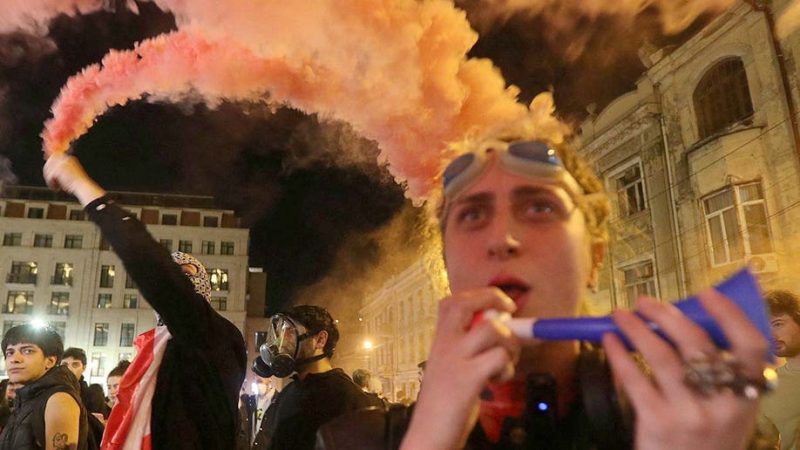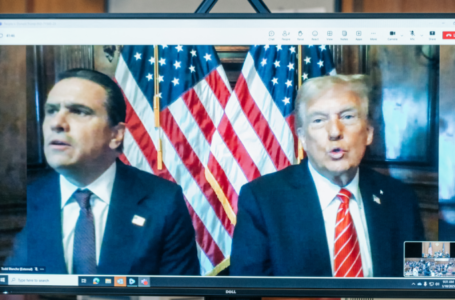Venezuela’s Nicolas Maduro sworn in for third presidential term
Georgian opposition parties urge mass protests against ‘Russian’ bill


Six Georgian opposition parties appealed on Thursday for mass protests against a government bill on ‘foreign agents’ which they say aims to block the South Caucasus country’s path towards the European Union and NATO.
The bill, which critics compare to legislation that Russia has used extensively to crack down on dissent, has already prompted three straight nights of demonstrations this week in the capital Tbilisi.
Up to 10,000 protesters gathered outside the parliament on Wednesday evening before marching on the prime minister’s office. At least 13 people have been detained over the past two days and one police officer was injured in altercations, the interior ministry said.
In their jointly published statement, the opposition parties hailed the protesters’ ‘fighting spirit’ and slammed the ruling Georgian Dream party for supporting the bill.
‘The Russian law initiated by ‘Georgian Dream’ is in contradiction with the Constitution of Georgia, the will of the Georgian people to become a full-fledged member of the European Union and NATO, and the long-term goal of securing the sovereignty of our country,’ the parties said.
The Kremlin has denied any association with the bill.
The opposition specifically singled out Bidzina Ivanishvili, a billionaire former prime minister who founded Georgian Dream, for ‘trying to kill the European future of Georgia’.
Ivanishvili could not be reached for comment.
The bill would require organizations receiving more than 20% of their funding from abroad to register as agents of foreign influence. Georgian Dream says it will help promote transparency and combat ‘pseudo-liberal values’ imposed by foreigners.
Eighty-three of parliament’s 150 deputies backed the bill on its first reading on Wednesday in a vote boycotted by opposition parties. It must clear two more readings to become law.
The EU said the bill risks blocking Georgia’s path to membership, while the U.S. State Department also expressed disappointment over Wednesday’s parliamentary vote.
‘(The bill) could limit freedom of expression, stigmatize organizations that deliver these benefits to the citizens of Georgia, and impede independent media organizations working to provide Georgians with access to high quality information,’ State Department spokesman Matthew Miller said in a statement.
Georgia’s pro-European opposition is deeply divided, including over the legacy of jailed former president Mikheil Saakashvili, whose United National Movement (UNM) party remains the country’s second largest.
The UNM was among the six signatories to Thursday’s appeal.











